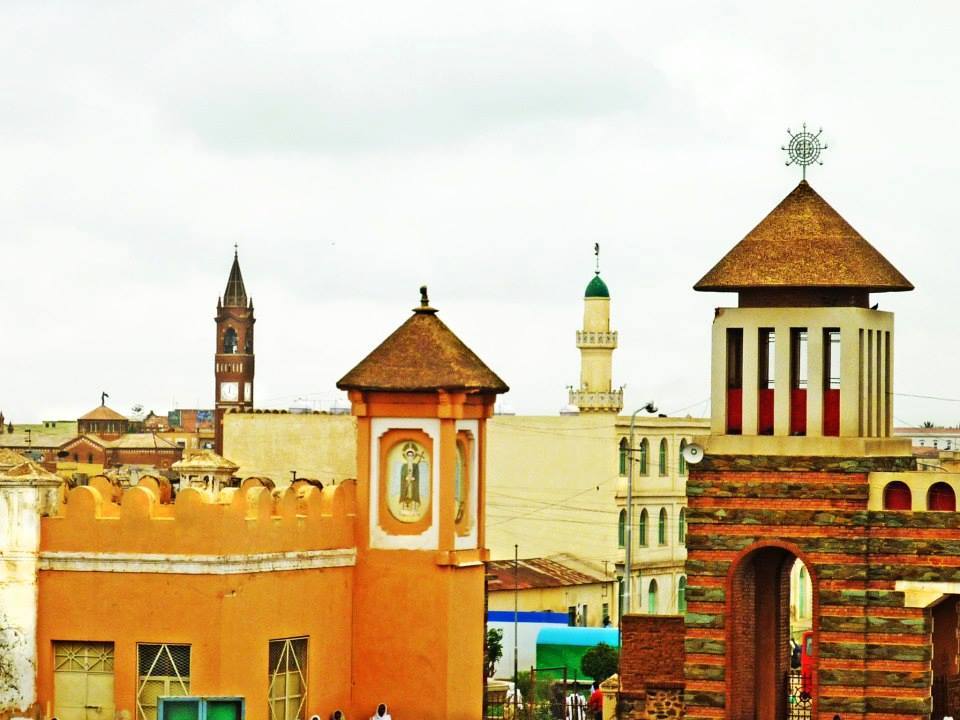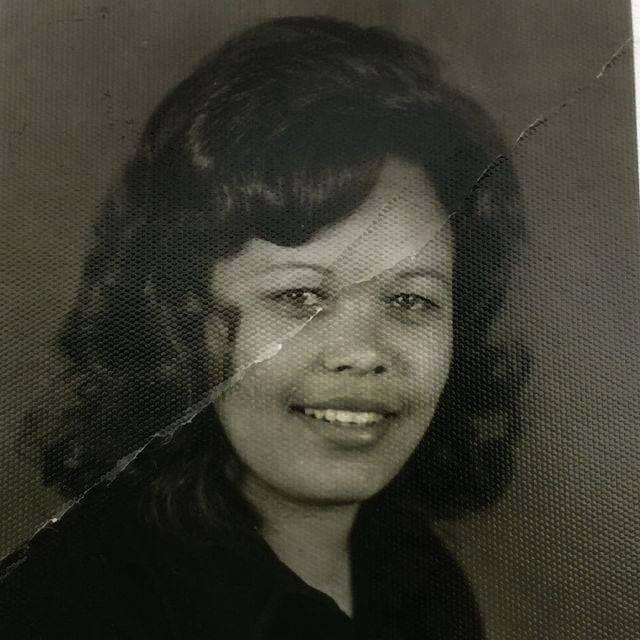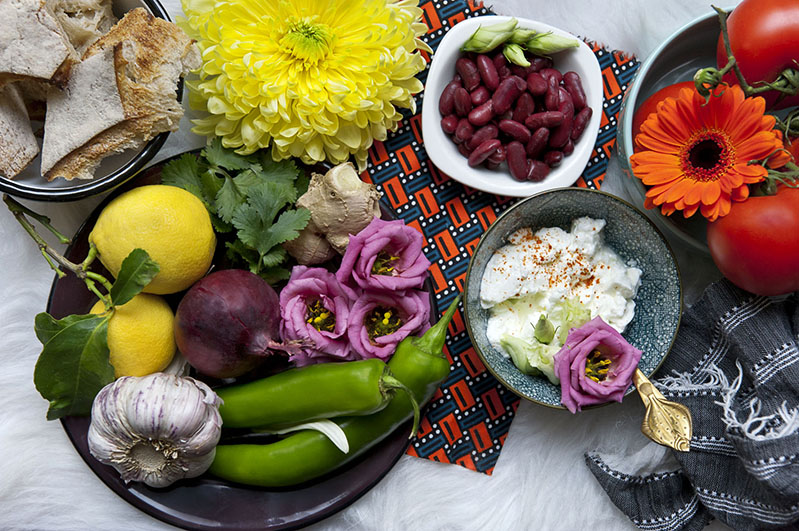Paris is the home of Mara. She left Milan 3 years ago, during a hot summer. Driven by the curiosity she decided to make her baggages and never came back. Since then I tried to visit her at least once a year, to remember our most memorable trip, when discovering the streets took us to unknown places feeling completely lost and excited at the same time. Mara was raised near Milan however her roots are eritrean. She is a beautiful mix of cultures, therefore it was very natural for me to asked her about her favourite recipe: FUL. She said to me “when I was a teen my dad would always make time to stop to “Africa”, an eritrean restaurant in Milan, to eat Ful, a traditonal dish, shepherd’s breakfast”. Ful is made with beans , yogurt and spiced with berberè. In my last trip, Mara and I spent a beautiful rainy day in Paris looking for ingredients at the market, buying flowers and little pots, cooking and talking. She’s one of the women of my life and within this recipe she tells the story of most important woman for her. Her mother.
Behind a small iron door painted blue, a small courtyard opens up and around it you can see the house. The walls, all around, protect the intimacy of an Asmarino awakening, a ritual that repeats itself. It’s 4 am: the bedroom windows are still ajar, everyone sleeps, also the hens under the water tank. Only the kitchen door looking at the garden is open, Rosa is already at the stove. From the gloom of the Coptic cathedral the bell sounds again announcing the beginning of the mass, some minute later the muezzin sings in the mosque, while the rooster finally announces the dawn. The sheep and the voices of the shepherds invade the streets, they cross the city to reach the pasture, while the smell of burning wood warms the migogo and the air. The city is waking up.

The recipe I chose is the shahan full, the breakfast of Eritrea. When Eritrea was no longer an Italian colony, when erased from school books in the motherland or, at best, reduced to an exotic adventure, Rosa attended a Comboni school and she learned to read and write in Italian and in Tigrinya. Daughter of a colonialism that Italy tried to forget, Rosa grew in a cultural life that only a city like Asmara could grant. The Italians called this land Abyssinia, Italianising its name which in the local language means Mix of peoples. This piece of red earth that touches the sea and reaches the sky, which at night is a jam of stars, Rosa always said, over the centuries it gave asylum to unexpected guests from the most ancient and different places. Cozy and discreet like a mother.Shahan full, foul, fūl medammis are various names by which this dish is called, a dish that travels from Lebanon to Libya, although seen with different variations. A simple dish, a poor dish, a Berber dish? I really don’t know, the fact is that every time I eat it I think of my mother in her blue dress with red flowers cooking in the dim light in the kitchenette just beyond the garden while everyone is still asleep.

FOOD PHOTOGRAPHY: FOSCA
FAMILY PICTURES: MARA HAREGU
FOODSTYLING: FOSCA & MARA HAREGU
TEXT: MARA HAREGU & FOSCA
———————————-
Mara vive a Parigi ormai da un po’ di tempo. L’estate di tre anni fa partì da Milano per vedere come ci si stava e non è più tornata. Così ogni anno vado a trovarla per qualche giorno e, come la prima volta che ci andammo, mappiamo la città camminando fino a perderci. Mara è cresciuta poco fuori Milano ed ha origini eritree. Quando le ho chiesto di cucinare insieme un piatto della sua tradizione mi ha proposto il ful. “Quando da ragazza andavo a Milano con mio padre, facevamo tappa fissa al ristorante Africa per mangiare la vera colazione Eritrea, il ful, la colazione dei pastori.” Così in un pomeriggio di pioggia io e Mara abbiamo cercato gli ingredienti al mercato e comprato fiori e contenitori colorati. La piccola cucina si è riempita degli odori di una terra lontana e delle storie che Mara ha ricordato per me. Mara è una delle donne della mia vita e qui racconta la storia di una delle più importanti per lei. Sua madre. Dietro una piccola porta di ferro dipinta di blu si apre un cortiletto attorno al quale si sviluppa la casa. I muri tutt’intorno proteggono l’intimità di un risveglio asmarino, un rituale sempre uguale a se stesso. Sono le 4 del mattino : le finestre delle stanze da letto sono ancora socchiuse, tutti dormono, anche le galline sotto la cisterna dell’acqua. Solo la porta della cucina che dà sul giardino è aperta Rosa è già ai fornelli. Dalla penombra della cattedrale copta la campana risuona annunciando l’inizio della messa, qualche minuto più tardi canta il muezzin nella moschea, mentre il gallo annuncia finalmente l’alba. Le pecore e le voci dei pastori invadono le strade, attraversano la città per raggiungere il pascolo, mentre l’odore del legno che brucia scalda i migogò e l’aria. La città si sveglia. La ricetta che ho scelto è il shahan full, la colazione d’eritrea. Rosa è italo-eritrea, nata nel 1951 ad Asmara, sospesa a 2400 metri di altezza, in bilico tra Occidente e Oriente. Questa città del corno d’africa porta con sè il ricordo di un tormento tutto italiano : la conquista e la violenza, la sconfitta coloniale. Quando l’Eritrea non era già più una colonia italiana, cancellata dai libri di scuola in madre patria o, nel migliore dei casi, ridotta a un’avventura esotica, Rosa frequentava una scuola comboniana e imparava a leggere e scrivere in italiano e in tigrino. Figlia di un colonialismo che l’italia cercava di dimenticare, Rosa cresceva in una vivacità culturale che solo una città come Asmara poteva concedere. Gli italiani chiamavano questa terra Abissinia, italianizzando il suo nome che nella lingua locale significa Mescolanza di popoli. Questa lingua di terra rossa che tocca il mare e arriva fino al cielo, che di notte è una marmellata di stelle, diceva sempre Rosa, nei secoli ha dato asilo agli ospiti inattesi dalle provenienze piùdisparate. Accogliente e discreta come una madre. Shahan full, foul, fūl medammis sono vari nomi con cui viene chiamato questo piatto, che trova spazio dal Libano alla Libia, declinato in molte varianti. Un piatto semplice, un piatto povero, un piatto berbero? Proprio non saprei, fatto sta che ogni volta che lo mangio penso a mia madre con il suo vestito blu a fiori rossi che spadella in penombra nel cucinotto appena oltre il giardino mentre ancora tutti dormono.
